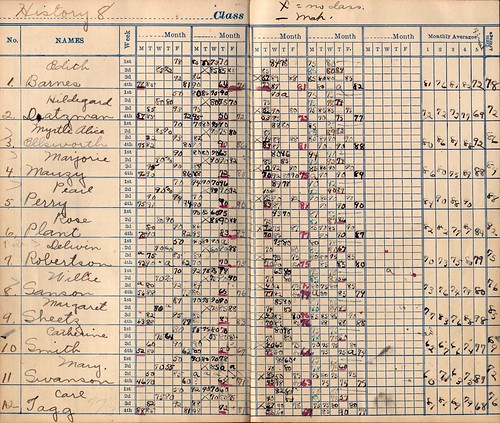Pretty funny, right? And perhaps a little too uncomfortably true?
Here are the two truths:
1. We are often painfully bad at assessing students' work.
Many traditional methods do not really assess much at all of our students' learning. I'm pointing the finger at myself here, because when I'm really honest with myself, for much of my teaching career I've assessed what is easiest to measure rather than what I most highly value. In our rush to quantify everything--which I'm not entirely sure is a good practice--what are we missing? Mr. D might be telling us something really important here: at least he's being honest about his duplicity. (Well, you know what I mean.)
2. We need to have conversations about our assessment practices if we want to get better.
The big take away for me here is that Mr. D is actually talking about his assessment methods (horrible as they might be) with a his friendly barkeep. Perhaps it would be better for him--and the rest of us--to have authentic conversations with colleagues about our assessment practices? What are we assessing? Why are we assessing it? How are we assessing? How can we get better?
 |
| A gradebook from 1923...does it look much different from yours in 2013? Image by Cat Sidh CC BY 2.0 |
(I owe a great deal to @RickWormeli for sharing this clip, and pushing me to keep thinking about this topic. Thank you for continuing to challenge me!)
Totally agreed that it is a necessity to have conversations about our assessment practices. Talk about what is working well and learn about what others are doing. No assessment strategy should ever be rigid. Good blog post.
ReplyDeleteThanks for the response! This is something I have been thinking about a lot lately--I think we need to get better in general at thinking about teaching in terms of communities of practice. For too long teachers have gone into their classrooms, closed the doors, and acted like it was their own little universe to command. The real downside with this is that it takes deliberate effort to connect with colleagues. And not just in a congenial way, but as true colleagues seeking to sharpen each other by having critical conversations.
DeleteThanks again for your response!
Dave,
ReplyDeleteHILARIOUS video clip! I have shared it with many colleagues.
You are so right. Conversations about grading must happen in staff meetings, PD, PLCs, etc... These conversations can become very emotional and are scary for someone to facilitate. However, putting norms in place and using discussion protocols are helpful. Thank you for sharing your post.
I'm glad to hear you're sharing it! When Rick Wormeli shared it at #AMLE2013, he used it to kick off a session about formative assessment and descriptive feedback, and he suggested that we *must* laugh at ourselves, because it can be hard to talk about these things, and humor helps. I love your suggestions about norms and protocols for discussion. Are you familiar with the Authentic Intellectual Work framework? It might be worth looking into this as a way of structuring these kinds of conversations.
DeleteThanks for the feedback!
LOL
ReplyDelete